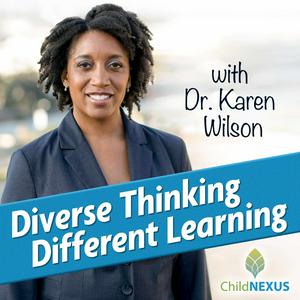Ep. 222: Wildfires and Mental Health: Understanding the Impact and Strategies for Recovery with Dr. Jyoti Mishra
We are joined for this episode by Dr. Jyoti Mishra to help us discuss an incredibly important and timely topic - the impact of wildfires on mental health. Dr. Mishra is an Associate Professor of Psychiatry at UC San Diego, the founder of NEATLabs, and co-director of the UC-wide Climate Change and Mental Health Initiative. Dr. Mishra specializes in climate trauma, resilience, digital health interventions, and precision psychiatry, with her work featured in major media outlets like CNN, TIME, and NPR. In this episode, we explore how natural disasters (such as the recent wildfires in Southern California) not only devastate homes and communities but also cause psychological trauma, with Dr. Mishra sharing her insights from studying the 2018 Camp Fire in Northern California, where her team uncovered alarming rates of PTSD, anxiety, and depression – all symptoms that can last for years even after the disaster itself is over. Our conversation touches upon the concept of "fire brain," a state of cognitive hyperarousal that mirrors PTSD and can impair focus, decision-making, and emotional regulation. Dr. Mishra also sheds some light on the unique vulnerability of children, whose mental and emotional well-being can be deeply affected by wildfire smoke and the disruption of their routines. Beyond individual struggles, we also highlight the collective trauma experienced by entire communities, including those indirectly impacted, and we discuss the importance of fostering resilience through community support, shared routines, and acts of kindness. Dr. Mishra explores how even just small acts of kindness and compassion such as offering hugs or participating in community fundraisers can lead to healing. This timely conversation truly stresses the need to address mental health in the wake of climate-related disasters, so whether you have experienced a wildfire firsthand or want to better support those who have, this episode offers insights and actionable steps to help individuals and communities recover. Show Notes: [3:50] Dr. Jyoti Mishra’s research explores how the brain and environment (including climate) shape mental health. [6:14] - Her study of the 2018 Camp Fire revealed high rates of PTSD, anxiety, and depression that persist long-term. [7:57] - We learn how wildfire survivors experience "fire brain” which is marked by distractibility, hyper-arousal, and impaired decision-making for months. [11:57] - Wildfire smoke affects children’s breathing, cognition, and emotions, requiring adults to provide stability. [14:19] - Dr. Mishra touches upon the difficult balance between physical safety and social connection. [16:57] - Wildfire recovery requires community-wide healing via collective support, shared routines, and working toward a sense of normalcy. [20:00] - Supporting each other during crises leads to resilience and promotes long-term mental well-being. [23:20] - It's important to address both visible and invisible wildfire impacts. [25:11] - Highlighting positive narratives and community support can transform disaster recovery into shared growth. [28:54] - Dr. Mishra points out how preparing for future disasters requires mindfulness and planning with community leaders. [32:25] - Post-trauma recovery should involve small steps, mindfulness, and self-compassion. [35:03] - Everyone can make a difference by serving others, even with small acts of kindness. Wildfire / Mental Health Resources: Disaster Distress Helpline: 1-800-985-5990 (available 24/7) CalHOPE LACPA’s Disaster Response Committee Bounce Back Organization Pro Bono Therapy for Los Angeles Wildfires (1) Pro Bono Therapy for Los Angeles Wildfires (2) Parent Guidelines for Helping Children Impacted by Wildfires Parent Guidelines for Helping Children Impacted by Wildfires (en Español) Wildfires: Tips for Parents on Media Coverage Wildfires: Tips for Parents on Media Coverage (en Español) Connect with Us: Get on our Email List Book a Consultation Get Support and Connect with a ChildNEXUS Provider Register for Our Self-Paced Mini Courses: Support for Parents Who Have Children with ADHD, Anxiety, or Dyslexia Connect with Dr. Jyoti Mishra: Jyoti’s Instagram Page NEATLabs Website Email:
[email protected] UC Climate Resilience Course The Little Brain (Book) Listen Up Kids! Our Climate Changing (Book by Jyoti’s Son Ayan)

